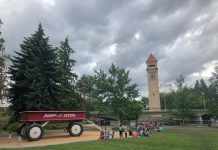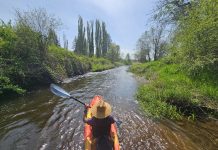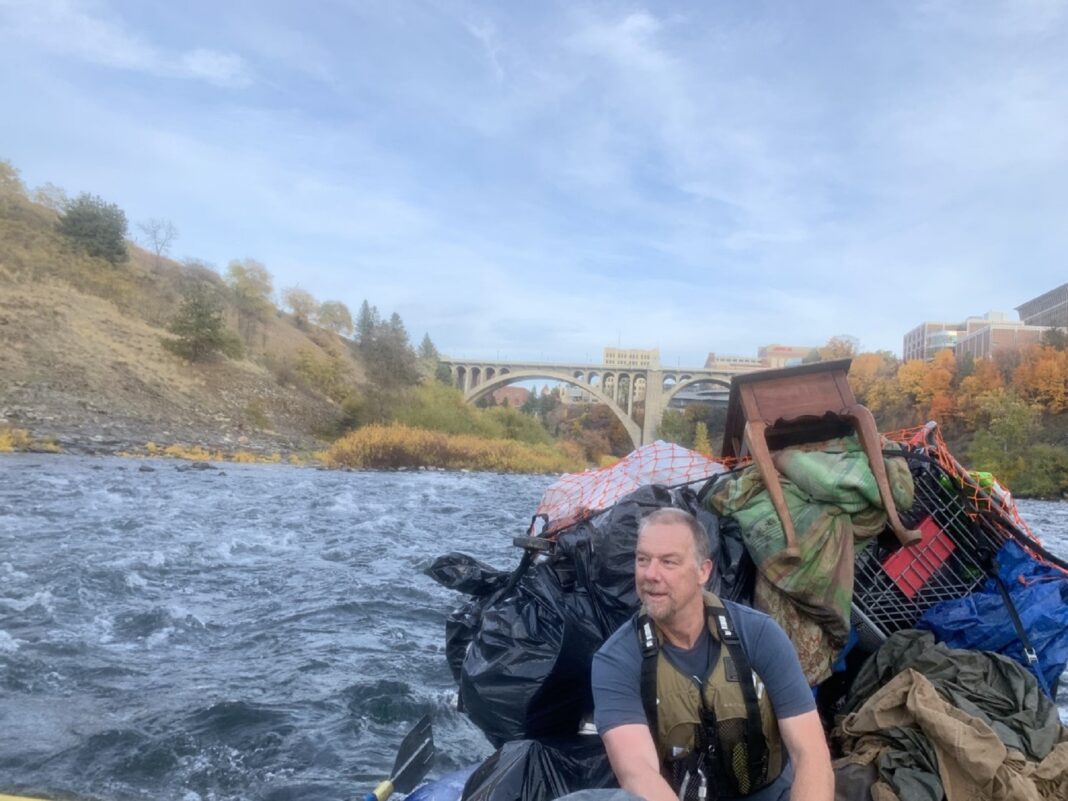Spokane Riverkeeper has been in existence for over 12 years protecting your river, but they’re finally a free-standing organization. At first, they were a project under the Center for Justice for many years. Now they’re a 501c3, up and running as a non-profit in Spokane. The organization is part of the International Waterkeeper Alliance, a global group that is a consortium of 350 waterkeeper organizations all over the Earth.
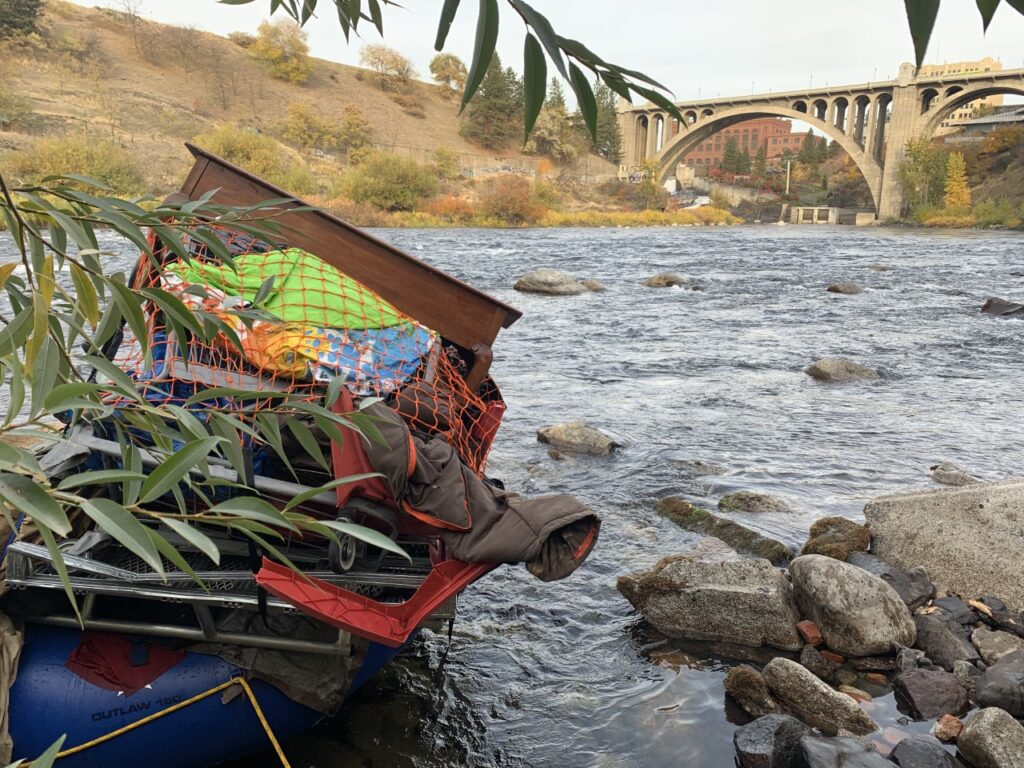
What do they stand for? Watershed-based advocacy. Their job is to monitor, regulate and protect the health of the Spokane River from Coeur d’Alene to the Columbia — a river running for over 111 miles. The advocacy also protects the main tributaries connecting to the river, like Little Spokane River and Hangman/Latah Creek.
Funding for the rubbish pick up along the river comes from the Department of Ecology. “Litter continues to be a huge issue for the Spokane river,” said Jerry White. “This is one of the ways we engage with partners and the community. We need to keep plastic and poisonous litter items out of our river.” Notice a peculiarly high amount of trash along the sides of the highway this year? Governmental budgets for litter pickup may have been cut. Luckily, you have the chance to help by personally contributing your time and effort to the cause.
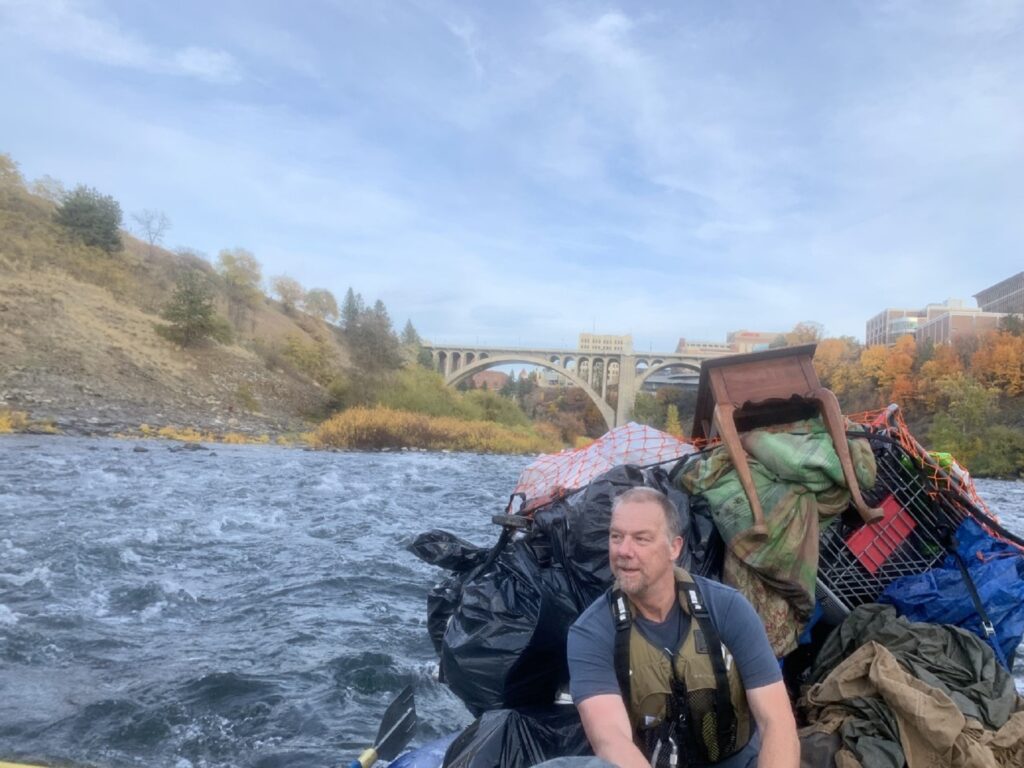
Spokane Riverkeeper Programs
Clean Water Defense Program
Spokane Riverkeeper takes a lot of time to comment on draft permits and potential polluters. A way to put this is that some industries have “a permit to pollute,” said White. “We keep an eagle-eye on the terms of those permits, making sure they are friendly to the river and the community.” The Clean Water Act mandates that if dumping things into the river, you need a permit. For instance, wastewater is let into the river, and sewage-treatment plants need permits for dumping. These are the permits Spokane Riverkeeper reviews. Water samples are taken, and there’s a limit on pollution allowed. Reading permits and only allowing the maximum levels is important to prevent toxic levels. Spokane Riverkeeper turns a public eye toward “legal pollution permits.”
Science Samples on the River
They also have a science program, collecting their own samples on the river. Water quality, temperature, and turbidity (or dirt pollution) are collected and tested. “Which is a symptom of a landscape that’s bleeding pollutants into the water,” explained White. “Water is constantly monitored, and in some dangerous conditions, it’s immediately reported.” The data is handed over to the Washington State Department of Ecology. “We build a case. If the river has an issue, we need to revise legal policies to address the issue,” warned White. In the Spokane Basin, issues are raised constantly. “Years of letters, press coverage, pressure and one massive lawsuit against the federal government for not doing their part,” said White, has led to some of the issues being reversed. “If nobody calls out issues, they go unaddressed. We are advocates, and finally, it’s having a positive effect.”
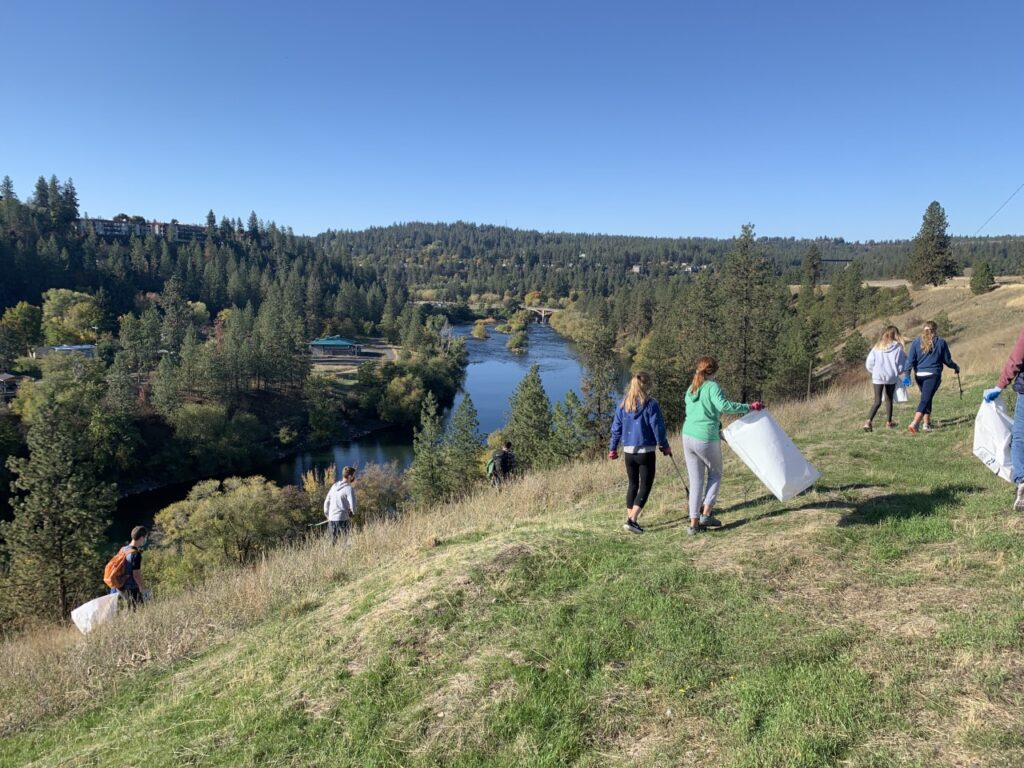
Work on Water Conservation
Attention needs to be called to keep water physically in the river. The Spokane Valley Rathdrum Prairie Aquafer, holding trillions of gallons, stretches from Sandpoint to Coeur d’Alene and Spokane and feeds the river in many places. “All the pumping from Rathdrum Prairie to Spokane has a major impact on that aquafer,” said White, “The more we conserve water, the more we save it for where it’s needed by nature. We want to promote the smart use of water — put in smarter and more efficient fixtures or encourage xeriscaping to cut peak-demand water use,” said White. Household water use (long hot showers) is not such a big problem. Most of the problem stems from irrigation, and not for edible crops and plants, but the acres of green-grassy lawns lush during the summer.
There are many “tools in the box” for Spokane Riverkeeper, one of them being the legal route. “The water world is full of legal policies, which we make sure are being followed by and for the community of Spokane,” said White. By partnering and collaborating wherever they can to get things done, community engagement and outreach have been a great way to get people out into the environment, making a difference. “Often, people don’t think of problems outside their peripheral if they’re not exposed to it. We get people engaged by picking up litter and taking water samples,” said White.
Native-fish protection is also a top priority, and Spokane Riverkeeper supports the initiatives and efforts to native salmon recovery and trout protection. “The last salmon were seen in the Spokane River back in 1911 when Lake Spokane dam was built. Lower down, they were last seen in 1942 with the arrival of the Grand Coulee Dam,” noted White. Idaho Fish and Game have dropped salmon in the Coeur d’Alene Lake, but they’re sport fish, not native species. Spokane Tribe and Coeur d’Alene Tribe lead fish recovery efforts, with Spokane Riverkeeper supporting their efforts. Other partners include Spokane River Forum, Washington State Sierra Club, and Northwest Renewables.
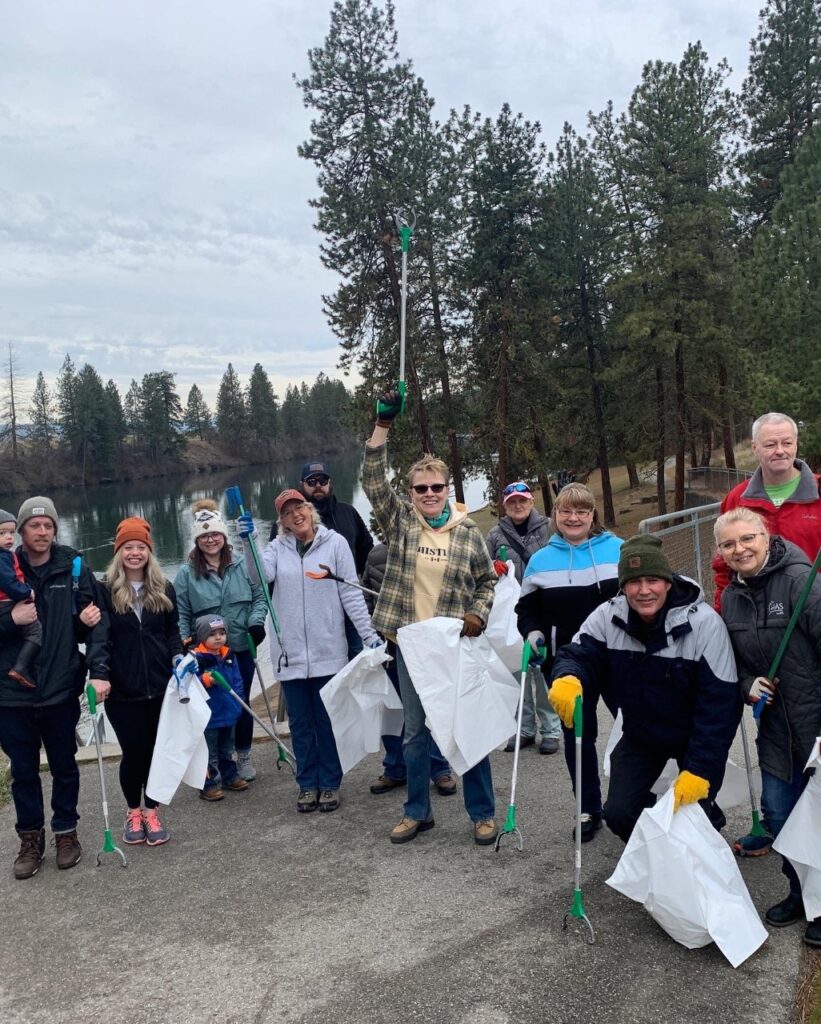
Spokane Litter Pickup Program
Going on seven years, with the help of the Spokane community, Spokane’s litter problem is helped by this litter pickup program. Last year alone, over 25,000 pounds of trash was fished out along the banks of the Spokane River. Litter is lifted by hand or by floating the river in 16-foot-rafts, getting the trash out from hard-to-reach places. Sponsors, grants, donations, and the exertion from the community are what keep the program going. “thanks to the community and people that like to see the river clean and beautiful,” acknowledged White. There are several ways you can help.
Public Events
- April 23
- June 25
- September 17
Follow Spokane Riverkeeper’s Facebook for more options.
Private Events
Schedule an event where your church, company, or group of friends can go out on an outing together. Sixty-three group-cleanup events were hosted last year. Contact Spokane Riverkeeper to set up a group event.
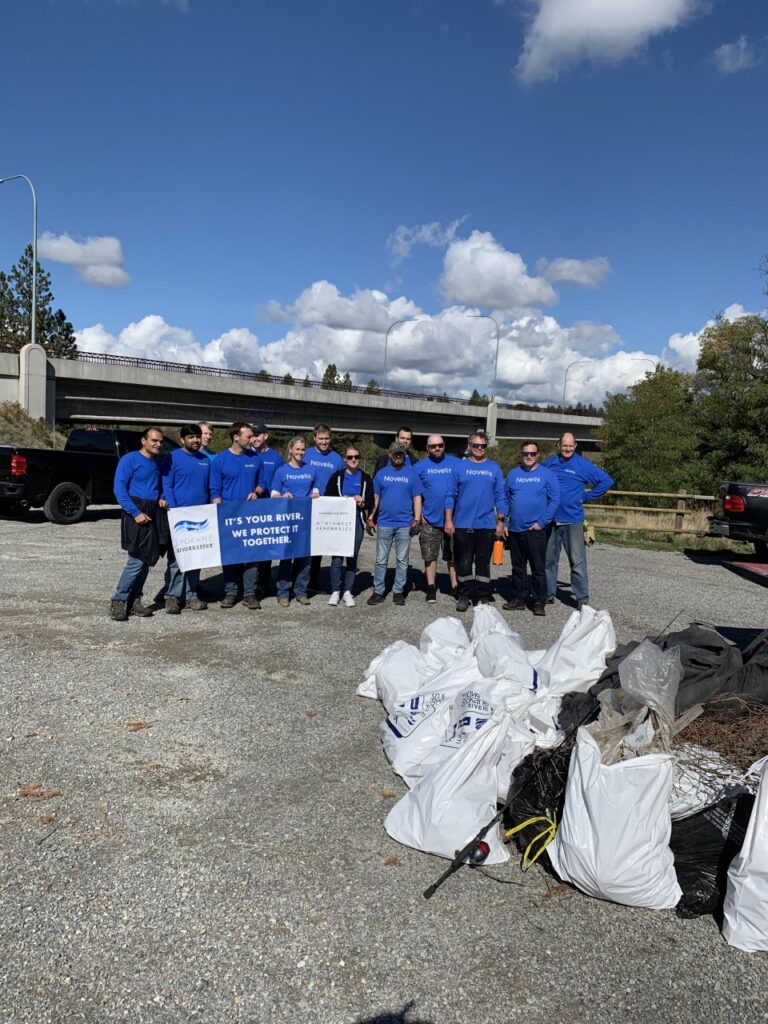
Schedule a DIY Cleanup
This new program was birthed out of the pandemic. Spokane Riverkeeper offers logistical support, pickers, bags, and gloves so you can go out and do it yourself. If you have a special place you want to pick up litter and can’t make events on their schedule, you can still get involved. Spokane Riverkeeper will even pick up your collection for you.
All litter is taken to the Waste Energy Plant, where they quickly burn it at high-heat intensity. This produces power and electricity for over 7,000 homes around Spokane per year, turning trash into energy sources rather than simply the dumpy downfall it seems to be. You don’t have to be wealthy to make a difference in this world. You can make a positive impact simply by providing your presence and volunteering your time to aid the health and habitat of your community, its ecology, and Mother Earth. Let’s make Earth Day every day!

















